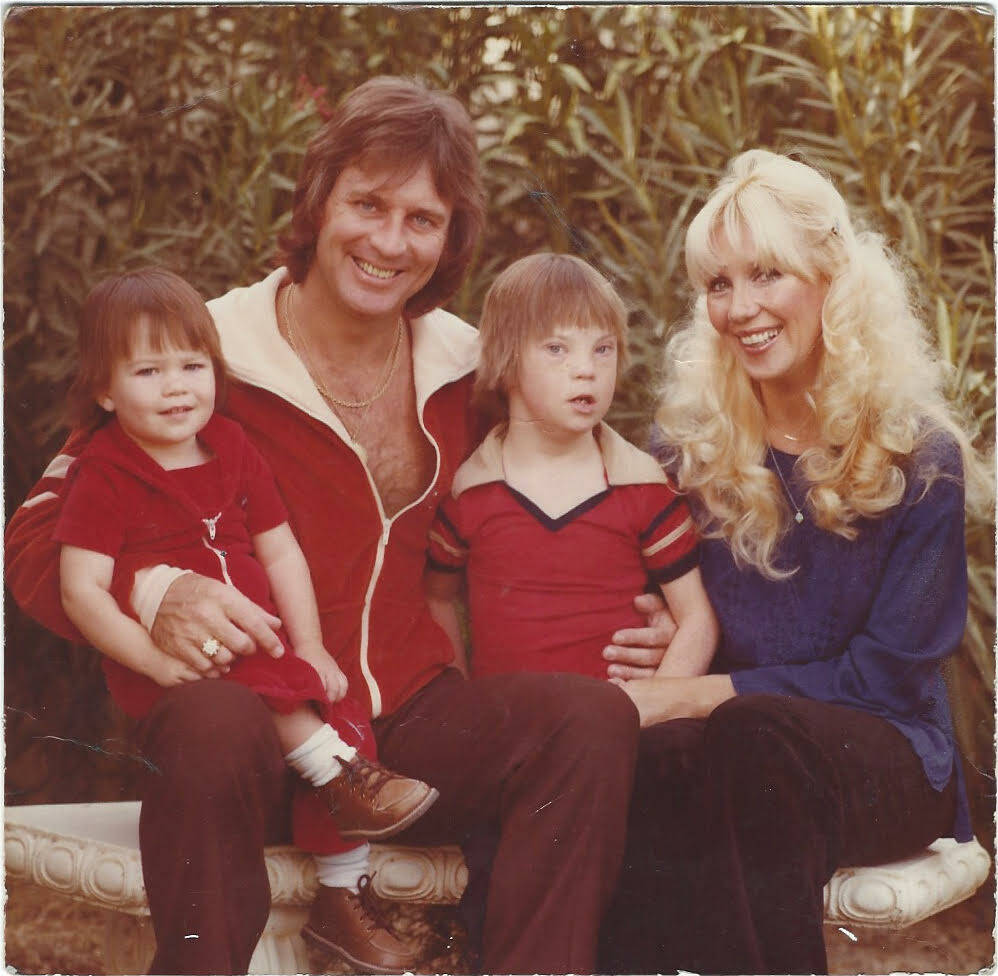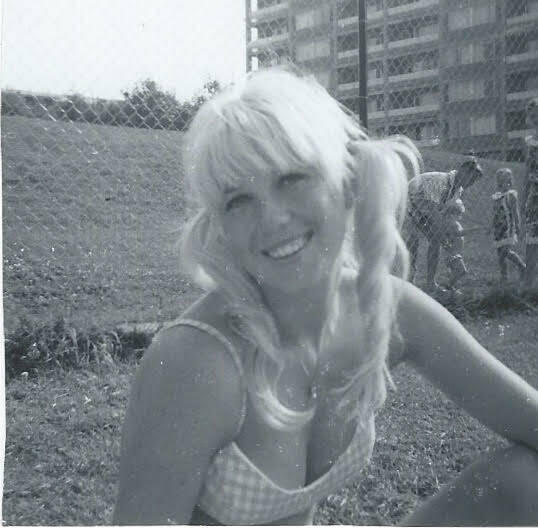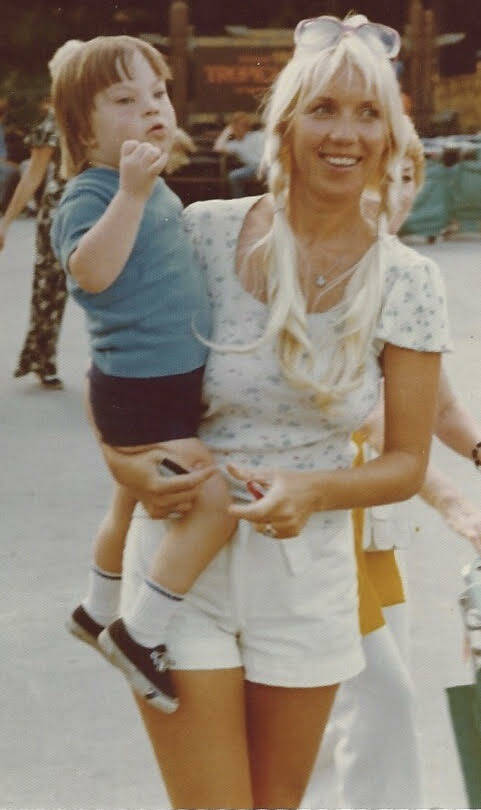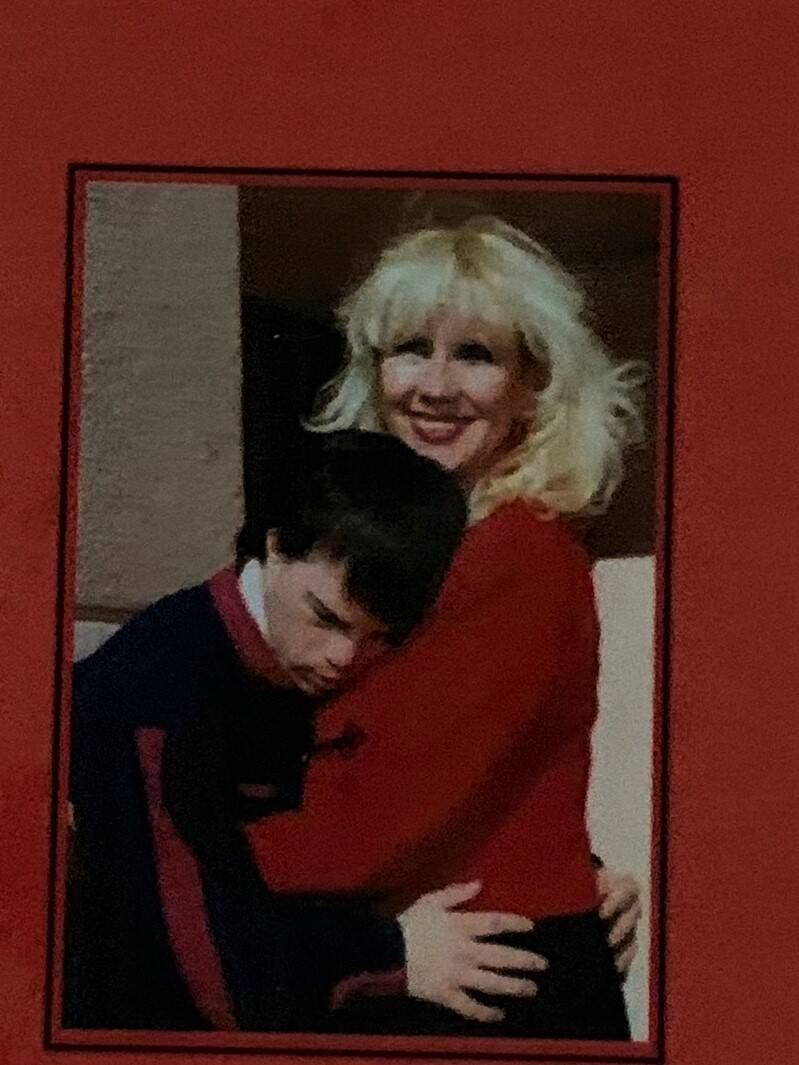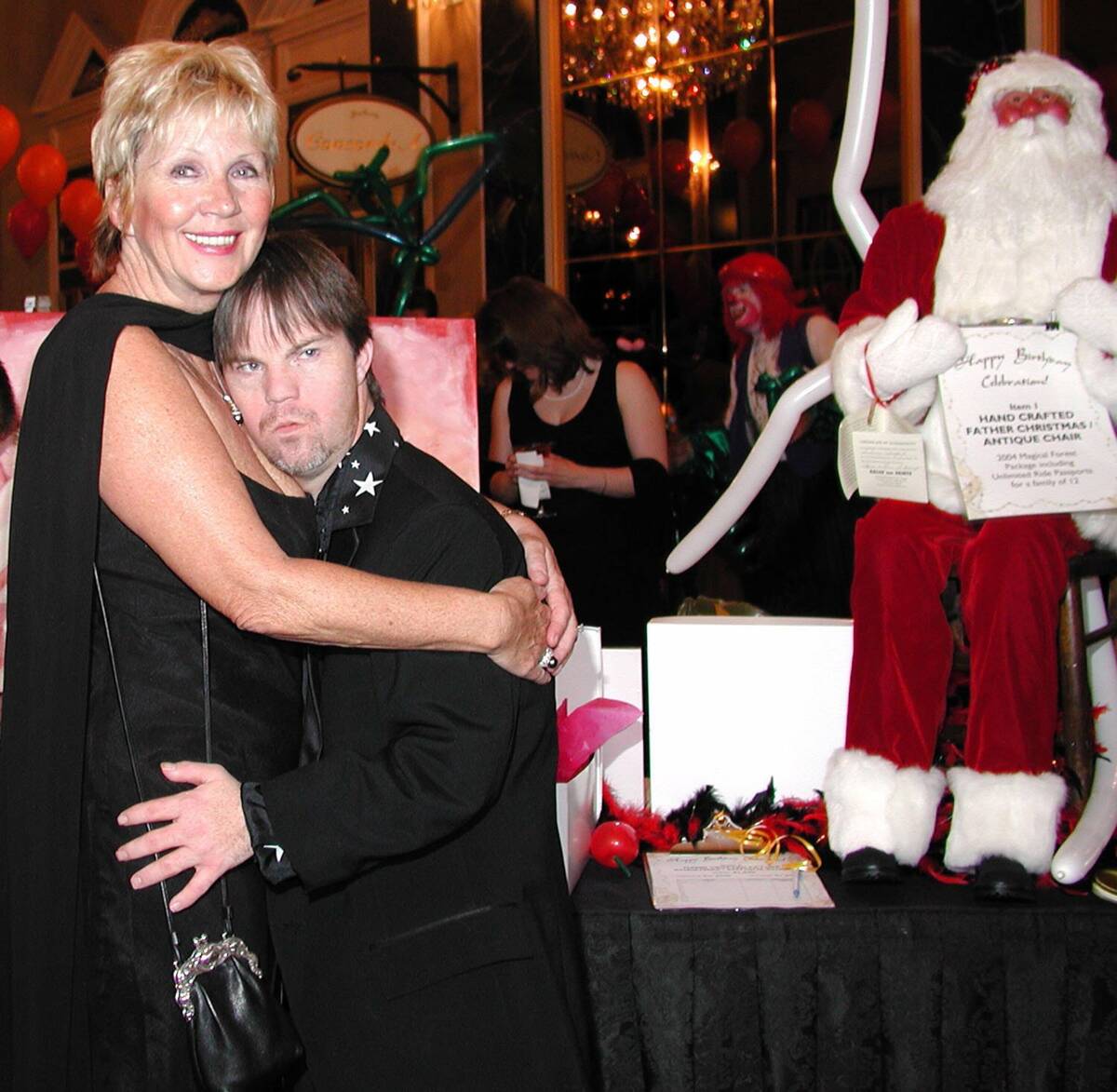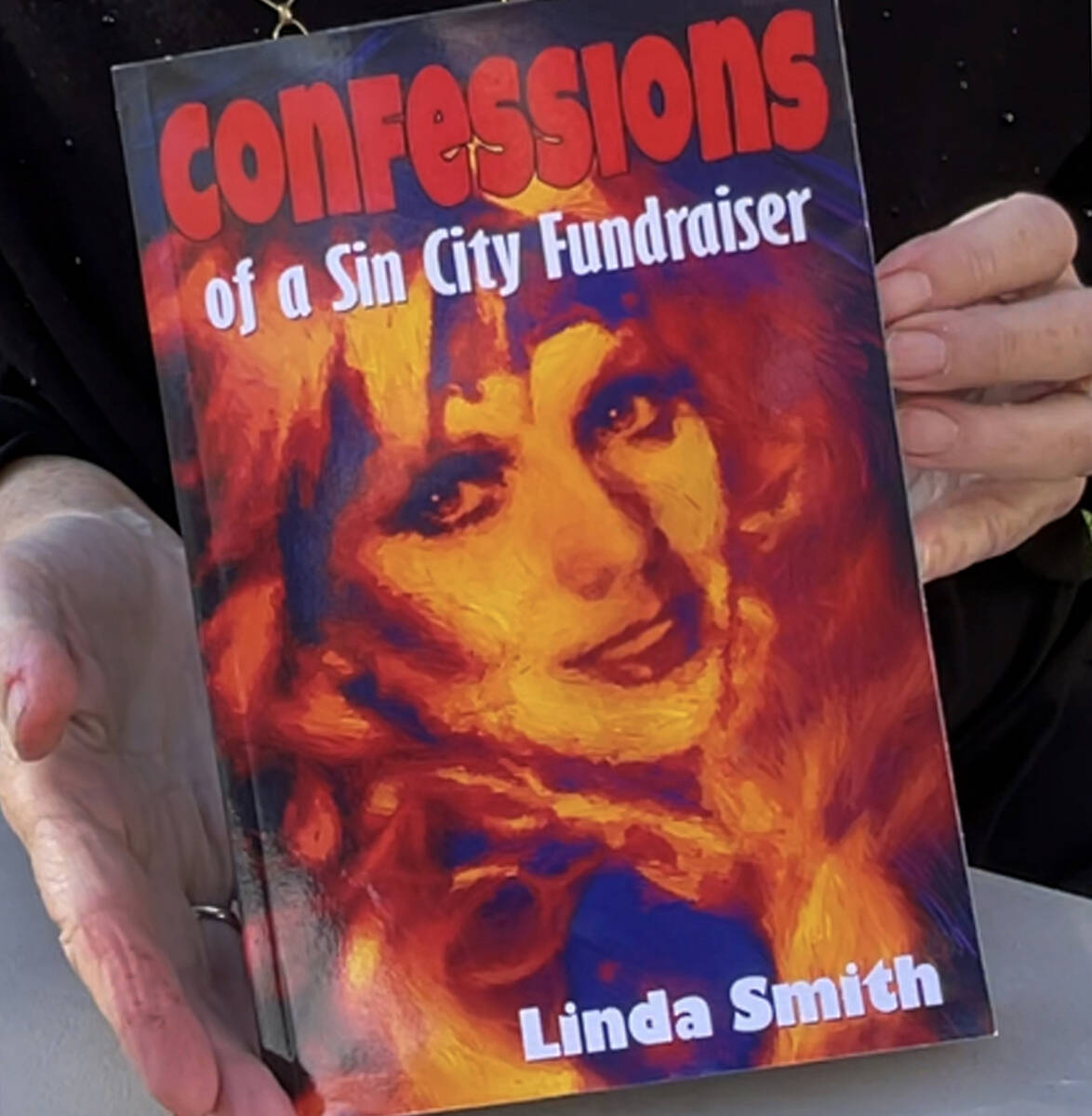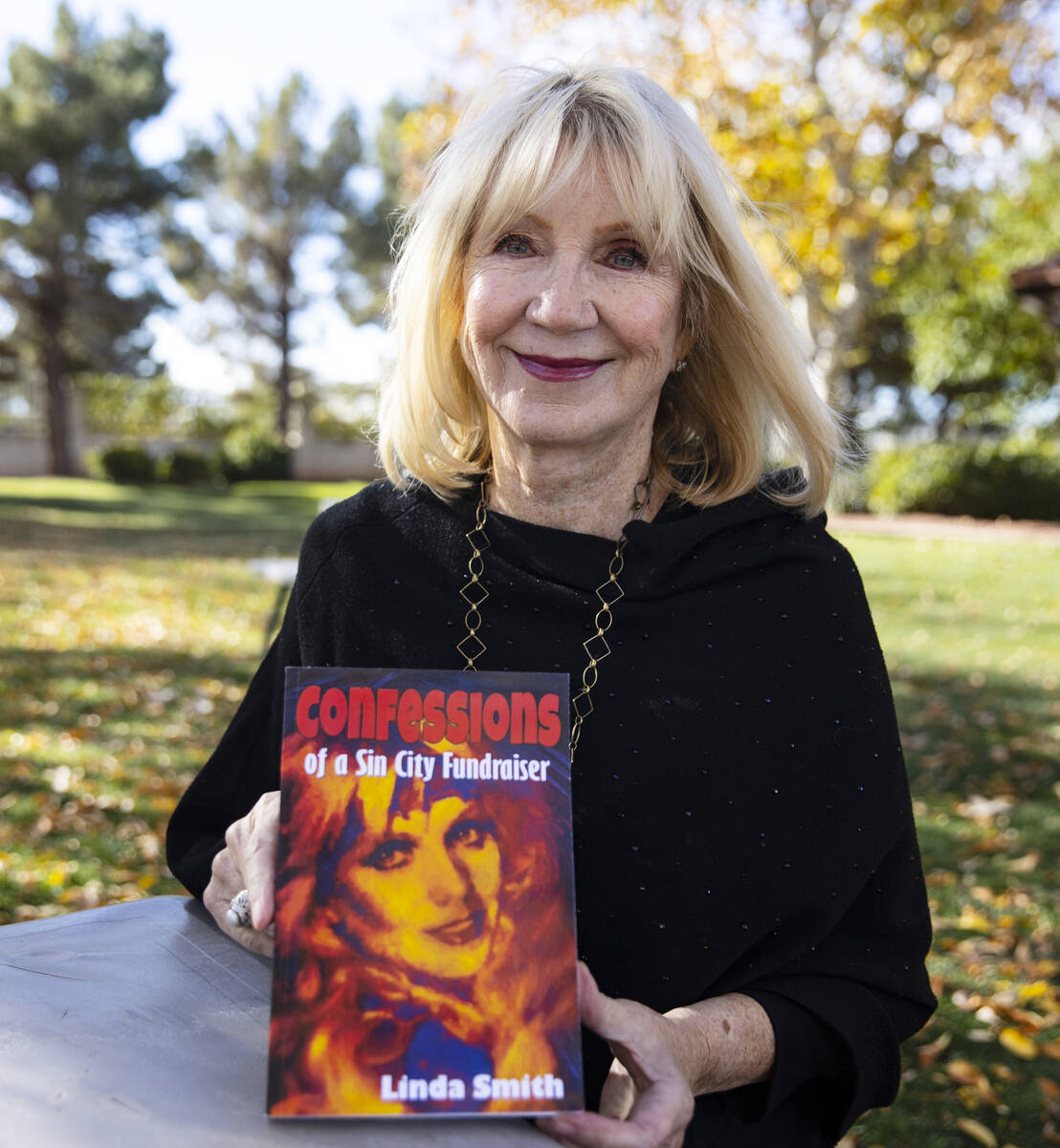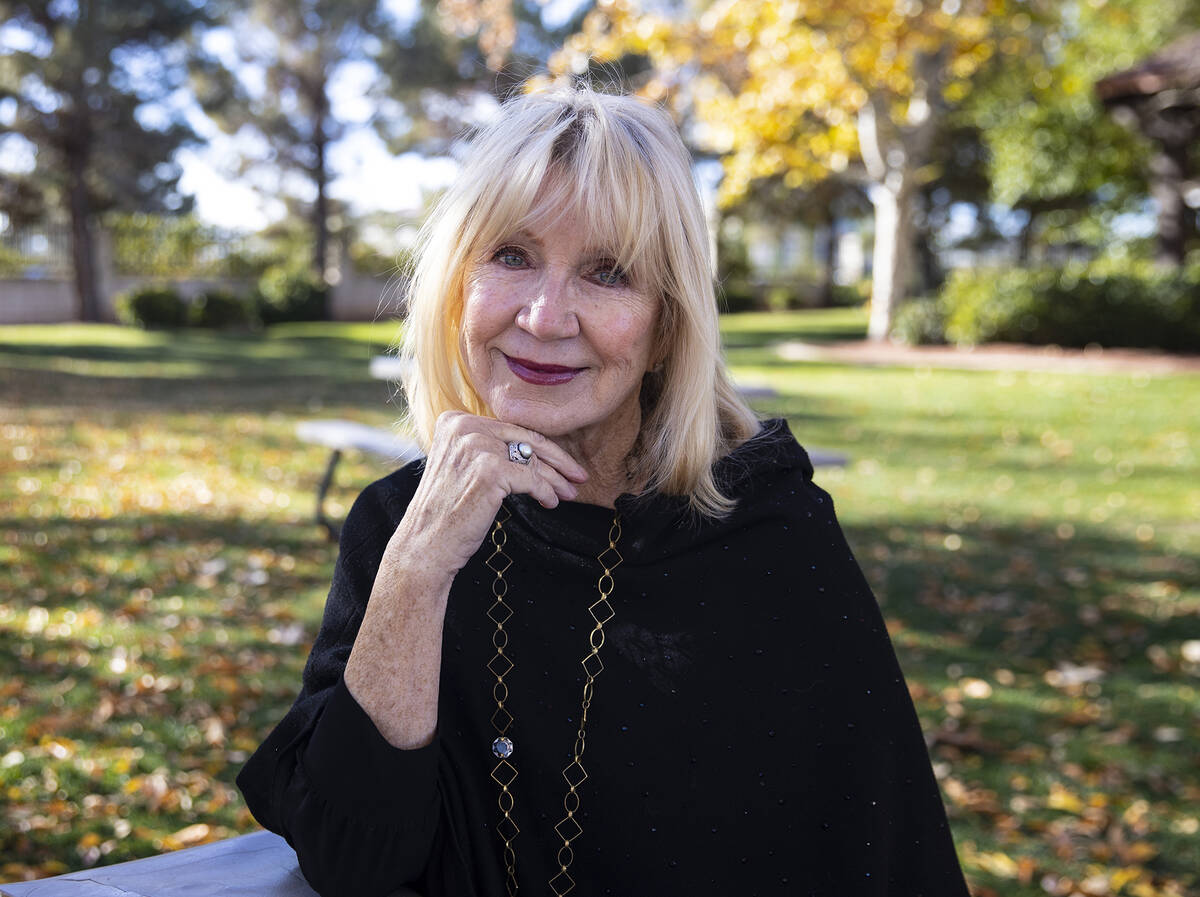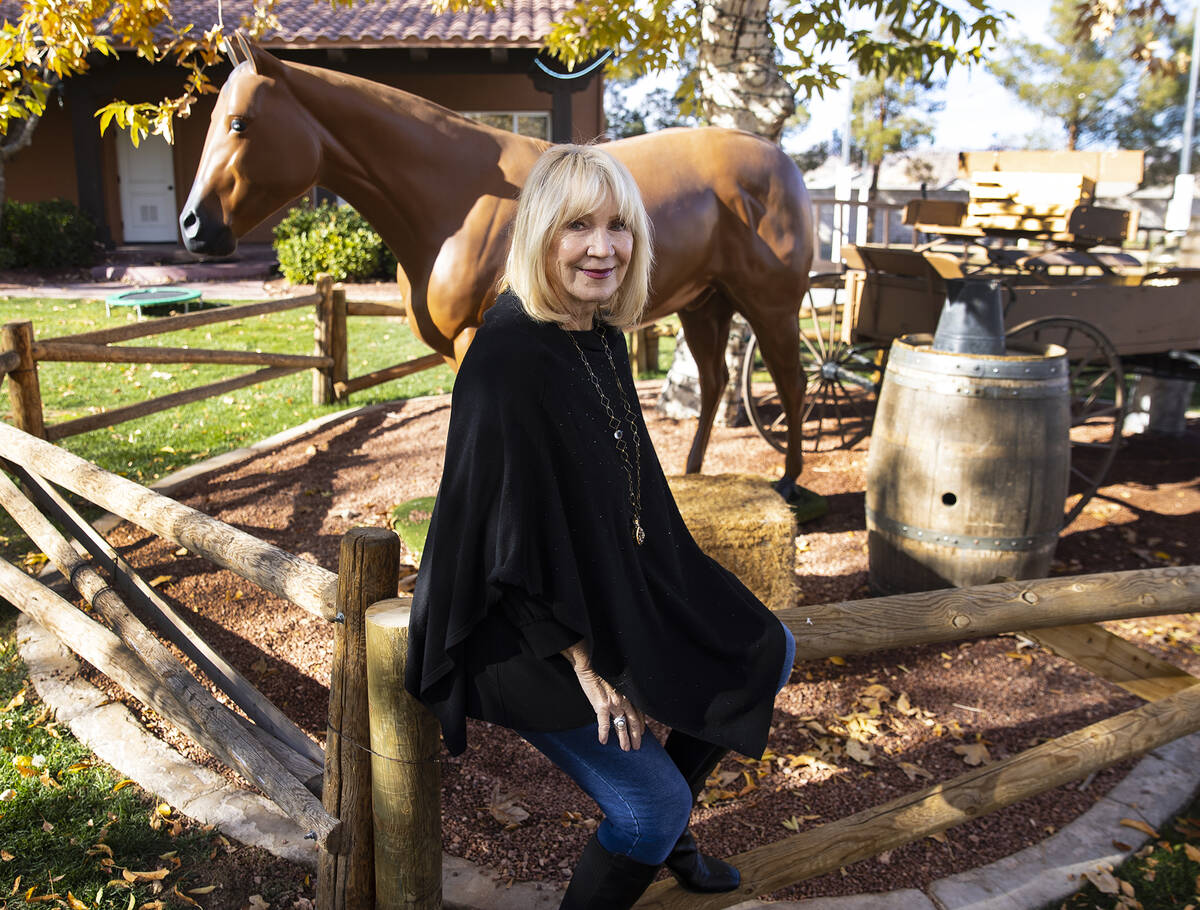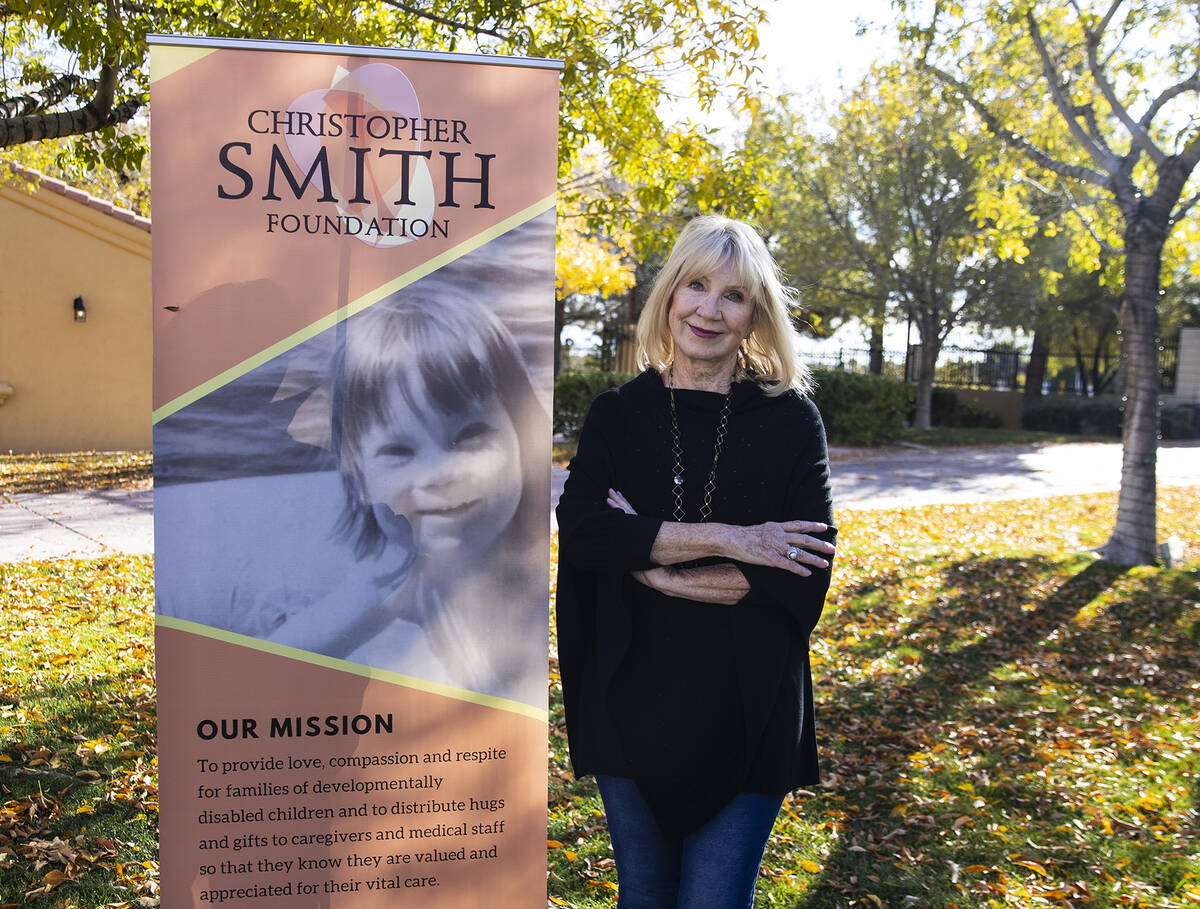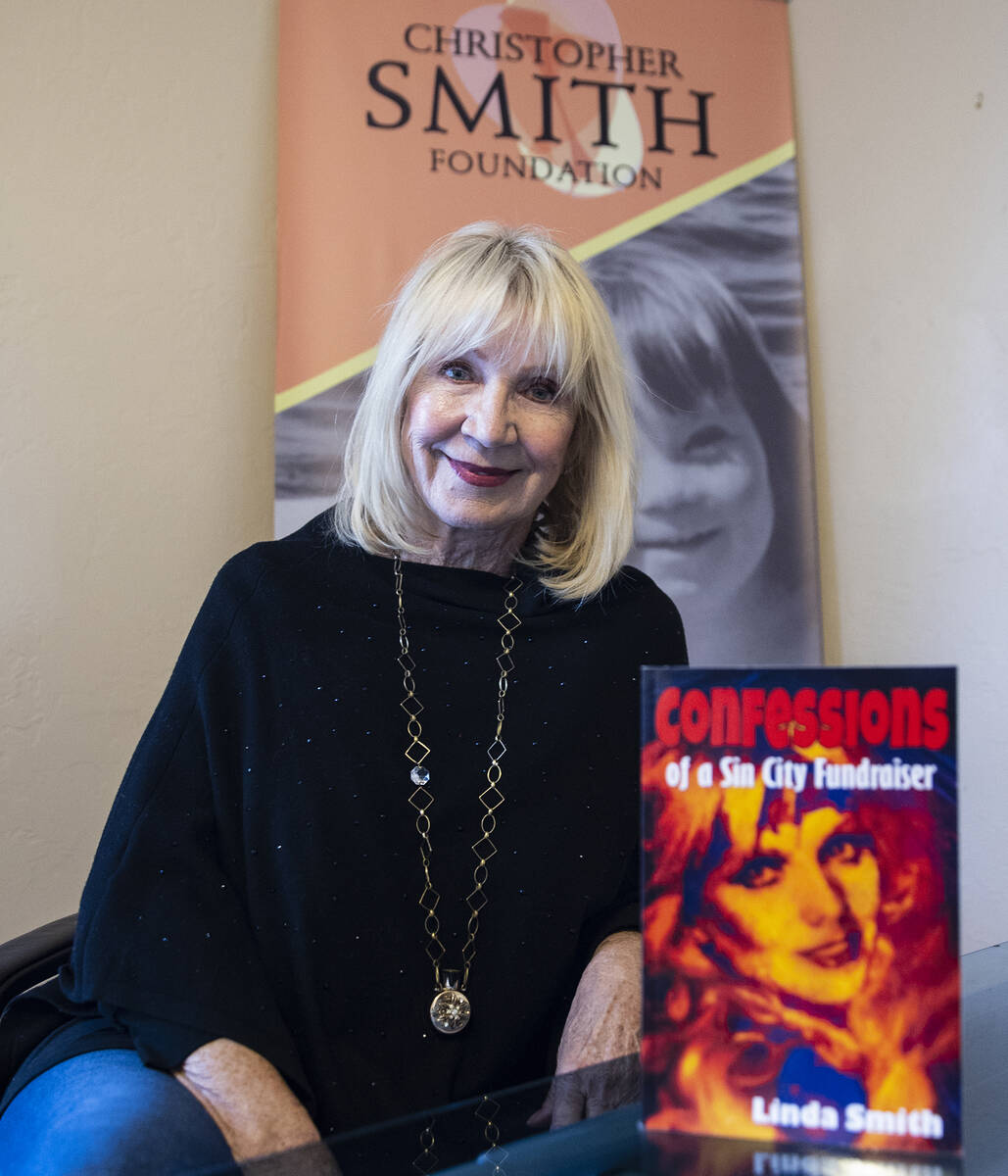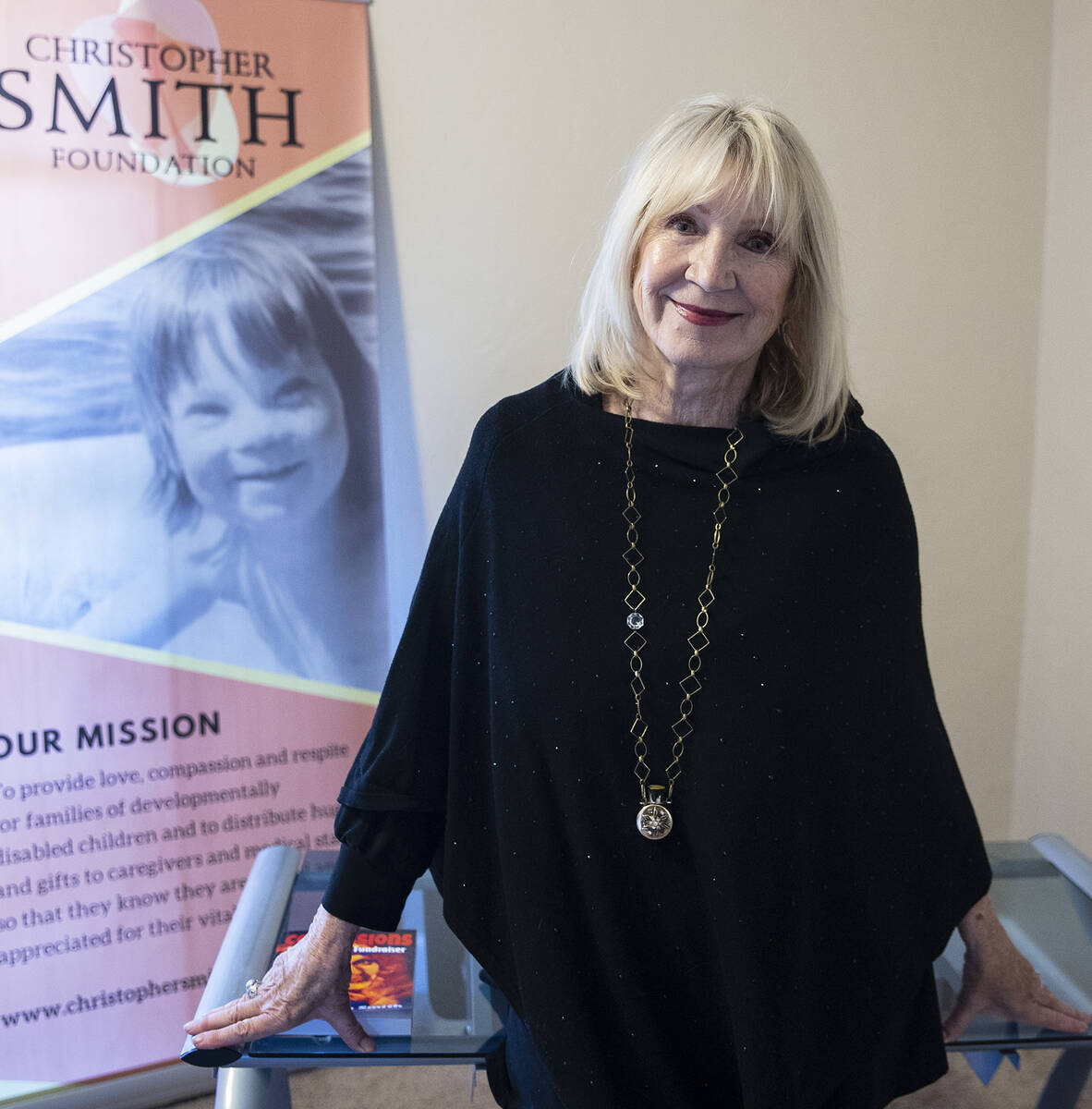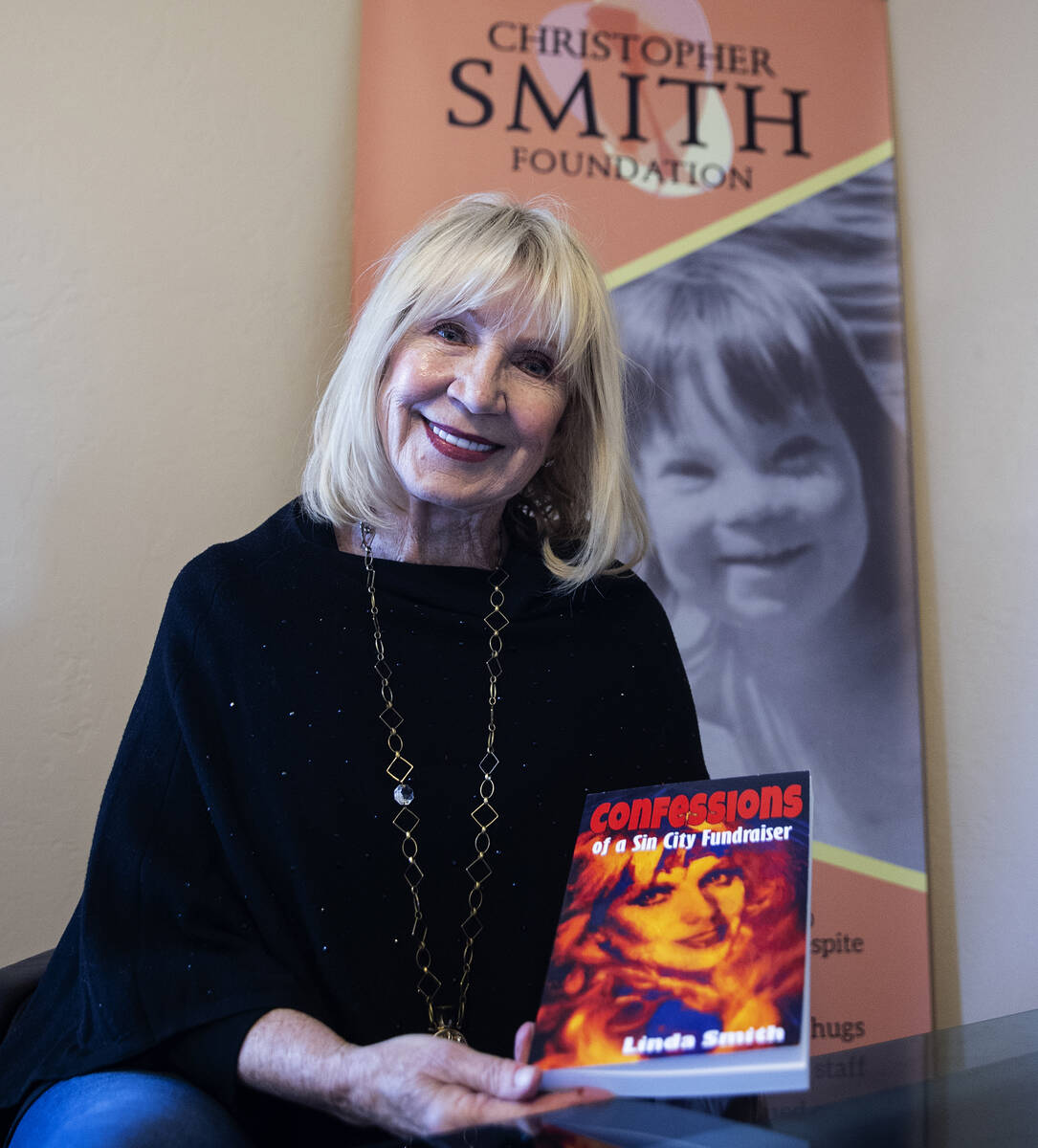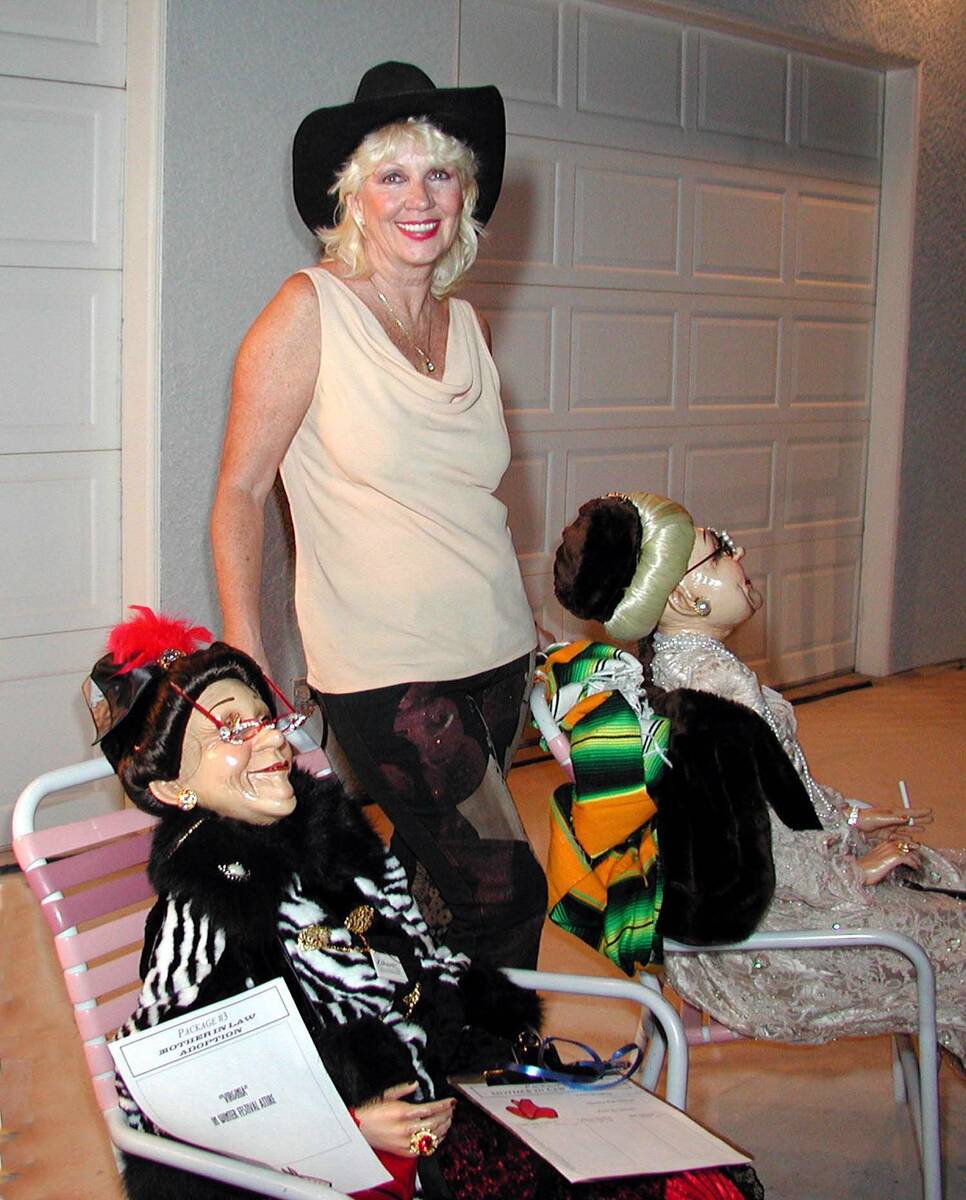Book offers behind-the-scenes look at Las Vegas charitable fundraising
Everyone who has lived here has at least one good Vegas story. But, even though she’s too nice to gloat about it, Linda Smith’s Las Vegas stories are sure to beat yours.
An uncomfortable meeting with a Las Vegas business legend. That time she mistook a Strip casino owner for a janitor. Getting stiffed by Jerry Lewis.
All are stories Smith can tell thanks to her 38 years as chief fundraiser and public ambassador for Opportunity Village, and all are stories Smith does tell in her new book, “Confessions of a Sin City Fundraiser: How a Former Showgirl Found Her Passion and Raised Half-a-Billion Dollars for Las Vegas Charities” ($14.99 paperback and $7.99 ebook via online retailers and LindasLife.com).
“Confessions” is a sequel of sorts to Smith’s first book, “Unwanted: How a Mother Learned to Turn Shame, Grief and Fear Into Purpose, Passion and Empowerment.” In that memoir, Smith writes about her abusive father, her difficult childhood, being homeless, her career as an actress and dancer, her marriage to Canadian entertainer Glenn Smith, and her life in Las Vegas.
That book also told of how Smith became involved with Opportunity Village and how her late son, Christopher, who was born with Down syndrome, propelled her into a career she never had thought of pursuing. (Christopher died in 2019 at age 48, and all proceeds from the book benefit the Christopher Smith Foundation, which assists caregivers and families with developmentally challenged children.)
Smith’s new book delves more deeply into the nuts and bolts of raising money for a good cause. Much of it illustrates lessons that can be applied to career or everyday life, and because many of Smith’s remembrances involve notable Las Vegans, there are appealing tidbits for local history buffs, too.
Telling stories
Smith — who left Opportunity Village in 2016 and now is a motivational speaker and fundraising consultant — wrote the book in part because of the way people react when they learn about her career. “I had these stories, and I could see people going, ‘Wow,’ ” she says.
“Most good fundraisers are storytellers by nature,” she writes in the book, “understanding the need to weave the thread from the donor to the cause, always remembering that it is about the donor first and not the cause or the project.
“People inevitably say, ‘Oh, it’s easy for you to fundraise because you have all of those beautiful hotels. Gosh, just walking into Caesars Palace they’ll give you money.’ I have to explain it’s not corporations that give money, it’s people who give the money.”
An accidental fundraiser
Fundraising “was not my career path,” Smith says. Rather, she writes, “My life as a fundraiser unwittingly began with Chris’ birth and an idea born out of desperation.”
Shortly after Christopher’s birth, Smith and her then-husband, Glenn — an entertainer whose career eventually brought the couple to Las Vegas — participated in a concert in Ontario, Canada, to raise money for a day care program for children with intellectual and developmental disabilities. The show essentially was the first Concert of Love, a star-studded extravaganza produced by the couple that for many years was Opportunity Village’s signature fundraiser in Las Vegas.
Among the performers who volunteered their time was a pre-“Saturday Night Live” Gilda Radner, who was “awesome and sweet,” Smith says. “She was immediately taken with Chris and wanted to help. She was just an amazing woman who just had that kindness in her.
“That first concert was successful, and from that I learned very much,” says Smith, who writes: “I was educating myself in the ways of philanthropy. The reason people give is that they are asked, and most people are afraid to ask other people for help.”
Coming to Las Vegas
When the couple arrived in Las Vegas, Opportunity Village was a small charity founded and largely funded by seven families, Smith says. “They opened their first thrift store and also had a little school because their kids were considered uneducable.
“It was founded in 1954, and I came along in the mid-’70s, and it evolved into what it became, which was an employment training center. It was small and struggling and just depended on the families. They didn’t have fundraising events and didn’t have a fundraising staff position.”
Smith had worked with the nonprofit as part of a celebrity wives organization when she was pregnant with Chris. After his birth, she helped out the group as a volunteer fundraiser. Seven years later, the volunteer job turned into a staff position and, for Smith, a new career.
A charitable education
She began to learn about the business, and the art, of raising money. Inevitably, some of the lessons came hard, and in the book she’s candid about the times things didn’t go well. Once, she visited the office of E. Parry Thomas, the banker who paved the way for Las Vegas’ development by pioneering loans to gaming companies, to ask him to be the honoree at a benefit to raise $25,000 for Opportunity Village.
Earlier, Mike O’Callaghan, former Nevada governor and then a Las Vegas Sun editor, who was a mentor and guide to Smith, had told her, “Smith, this is a busy guy, and you have one shot at him, so don’t mess it up.”
After being escorted to Thomas’ office, “I went on and on telling him why we need the $25,000 and ‘If we could just honor you … ,’ not taking a breath, not taking a hint,” Smith says. “Then poor Mr. Thomas looked at his watch.”
Smith knew she was losing him. Finally, she writes, Thomas told her, “I’ll give you $25,000 if you don’t honor me.”
Later, she writes, “Instead of telling me what a moron I was, Governor Mike laughed heartily and was very pleased. ‘Smith, let’s just find 10 more people who don’t want to be honored and send you on your way.’ And so he did. As I met with nine more powerful men in gaming, hospitality and industry, I picked up $25,000 at a time.”
Smith also recalls visiting the Imperial Palace with Chris for a meeting with owner Ralph Engelstad and asking a guy in blue jeans and an IP-logo shirt how to find the executive offices. The man — a janitor or other staffer, Smith assumed — showed the way, trading funny faces with Chris as the elevator ascended.
When they reached Engelstad’s office, Smith discovered that the man was Engelstad.
“Our very first face-to-face meeting,” she says. “He had a broom in his hand.” That awkward introduction aside, Engelstad became a strong supporter of Opportunity Village, and the agency’s location on South Buffalo Drive now is named Opportunity Village’s Ralph & Betty Engelstad Campus.
Celebrity encounters
Smith shares stories of encounters with celebrities over the years, too, including comedian Jerry Lewis, who once visited Opportunity Village’s Magical Forest with his entourage. Because he didn’t wish to mingle, he asked for the attraction to be opened early. However, Lewis showed up late and asked that paying guests be kept away, was rude, and refused to sign autographs for volunteers, according to Smith.
“By the time the group had swooped past every opportunity to pay, to purchase or show some modicum of interest in the fact that this was a volunteer-run event with all proceeds supporting charity … I was no longer a fan,” she writes.
“The next day, I did a quick calculation of the number of people in their entourage, how many rides they rode, entry costs, what you would have to pay for a VIP tour. I added up every nickel I could think of and sent an invoice for $370.” It was about making a point, Smith says.
But the invoice, and subsequent invoices, was neither acknowledged nor paid. Finally, six months later, she sent an invoice to Lewis’ PR representatives with, she writes, “a note (saying) ‘Your client owes people with disabilities $370. Mr. Lewis and his entourage came to a charity fundraising event and left without paying. There was no prearranged deal to not pay.’ We finally got the $370.”
But most celebrities were generous and supportive, Smith says. “I think it’s just understanding people are people first. Celebrities are people first. Most celebrities … it’s a nice experience.”
There are plenty more tales in the book — for example, a heated public relations battle with a local radio DJ who accused the nonprofit of shady dealings after a break-in at its thrift store — and the origin stories of such now-iconic fundraisers as the Las Vegas Great Santa Run and the Magical Forest.
Smith hopes readers will “laugh or chuckle at some of the stories and maybe learn a little bit more about what goes on behind the scenes in the nonprofit world. And, of course, I’m hoping people will, perhaps, learn more about the Christopher Smith Foundation and support people with disabilities.”
Also, she jokes, “I hope they (will) have more compassion for money-grubbing fundraisers.”
Contact John Przybys at reviewjournal.com. or 702-383-0280. Follow @JJPrzybys on Twitter.



